
Historical fiction is a literary genre in which a fictional plot takes place in the setting of particular real historical events. Although the term is commonly used as a synonym for historical fiction literature, it can also be applied to other types of narrative, including theatre, opera, cinema, and television, as well as video games and graphic novels.

Henry Graham Greene was an English writer and journalist regarded by many as one of the leading novelists of the 20th century.

Ivan Sergeyevich Turgenev was a Russian novelist, short story writer, poet, playwright, translator and popularizer of Russian literature in the West.
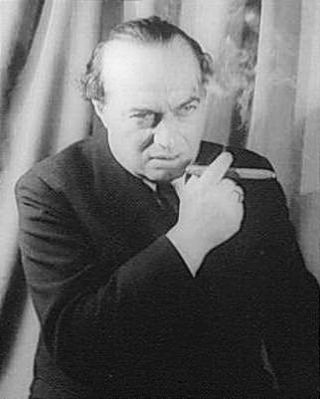
Franz Viktor Werfel was an Austrian-Bohemian novelist, playwright, and poet whose career spanned World War I, the Interwar period, and World War II. He is primarily known as the author of The Forty Days of Musa Dagh, a novel based on events that took place during the Armenian genocide of 1915, and The Song of Bernadette (1941), a novel about the life and visions of the French Catholic saint Bernadette Soubirous, which was made into a Hollywood film of the same name.
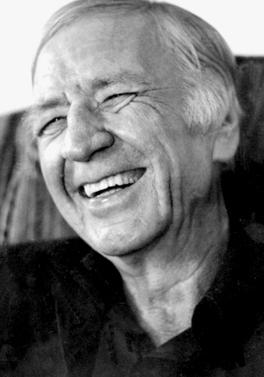
James Myers Thompson was an American prose writer and screenwriter, known for his hardboiled crime fiction.
Malcolm Azania, is a Kenyan-Canadian novelist, teacher, writer, and journalist. He is primarily known by his pen name, Minister Faust. In addition to writing science fiction, he is a playwright, journalist, teacher, and poet. He has also written video games. He was writer in residence at the University of Alberta, 2014-2015.

Roberto Bolaño Ávalos was a Chilean novelist, short-story writer, poet and essayist. In 1999, Bolaño won the Rómulo Gallegos Prize for his novel Los detectives salvajes, and in 2008 he was posthumously awarded the National Book Critics Circle Award for Fiction for his novel 2666, which was described by board member Marcela Valdes as a "work so rich and dazzling that it will surely draw readers and scholars for ages". The New York Times described him as "the most significant Latin American literary voice of his generation".

Before Sunrise is a 1995 romantic drama film directed by Richard Linklater and co-written by Linklater and Kim Krizan. The first installment in the Before trilogy, it follows Jesse and Céline as they meet on a Eurail train and disembark in Vienna to spend the night together.
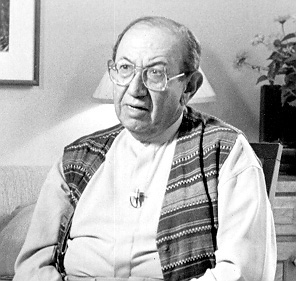
Daniel Keyes was an American writer who wrote the novel Flowers for Algernon. Keyes was given the Author Emeritus honor by the Science Fiction and Fantasy Writers of America in 2000.
Shiva Naipaul, born Shivadhar Srinivasa Naipaul in Port of Spain, Trinidad and Tobago, was an Indo-Trinidadian and British novelist and journalist.

Eva Maria Charlotte Michelle Ibbotson was a British novelist born in Austria to a Jewish family who fled the Nazis. She is known for her children's literature. Some of her novels for adults have been reissued for the young adult market. The historical novel Journey to the River Sea won her the Smarties Prize in category 9–11 years, garnered an unusual commendation as runner-up for the Guardian Prize, and made the Carnegie, Whitbread, and Blue Peter shortlists. She was a finalist for the 2010 Guardian Prize at the time of her death. Her last book, The Abominables, was among four finalists for the same award in 2012.
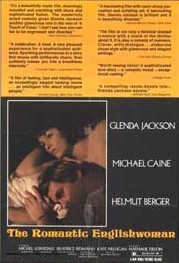
The Romantic Englishwoman is a 1975 British film directed by Joseph Losey and starring Michael Caine, Glenda Jackson, Helmut Berger. It marks the feature-length screen debut for Kate Nelligan. The screenplay was written by Tom Stoppard and Thomas Wiseman, based on the novel by the same title by Thomas Wiseman.
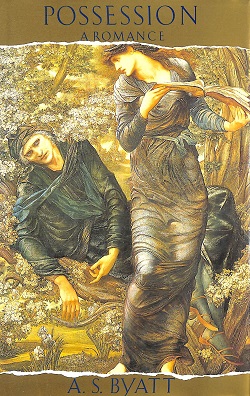
Possession: A Romance is a 1990 best-selling novel by English writer A. S. Byatt that won the 1990 Booker Prize for Fiction. The novel explores the postmodern concerns of similar novels, which are often categorised as historiographic metafiction, a genre that blends approaches from both historical fiction and metafiction.
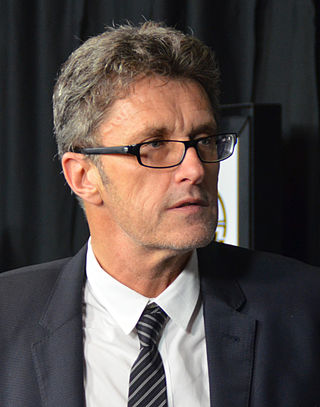
Paweł Aleksander Pawlikowski is a Polish filmmaker. He garnered early praise for a string of documentaries in the 1990s and for his award-winning feature films of the 2000s, Last Resort (2000) and My Summer of Love (2004). His success continued into the 2010s with Ida (2013), which won the Academy Award for Best Foreign Language Film, and Cold War (2018), for which Pawlikowski won the Best Director prize at the Cannes Film Festival and was nominated for the Academy Award for Best Director, while the film received a nomination for Best Foreign Language Film.
Calder Baynard Willingham Jr. was an American novelist and screenwriter.
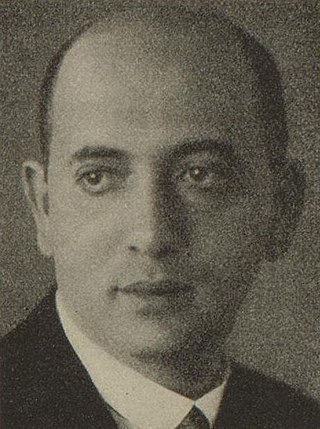
George Froeschel was an Austrian novelist and screenwriter. In 1943, he received two Academy Award nominations for co-writing screenplays for Mrs. Miniver and Random Harvest. He won the Academy Award for Mrs. Miniver.
Lionel Shapiro was a Canadian journalist and novelist. A war correspondent for The Montreal Gazette, he landed at the Allied invasion of Sicily, Salerno and Juno Beach on D-Day with the Canadian forces.

Thomas Savage was an American author of novels published between 1944 and 1988. He is best known for his Western novels, which drew on early experiences in the American West.

The type of romance considered here is mainly the genre of novel defined by the novelist Walter Scott as "a fictitious narrative in prose or verse; the interest of which turns upon marvellous and uncommon incidents", in contrast to mainstream novels which realistically depict the state of a society. These works frequently, but not exclusively, take the form of the historical novel. Scott's novels are also frequently described as historical romances, and Northrop Frye suggested "the general principle that most 'historical novels' are romances". Scott describes romance as a "kindred term", and many European languages do not distinguish between romance and novel: "a novel is le roman, der Roman, il romanzo".














